Most Socialist Countries In The World: A Socialist Country is a country which practices and adheres to the tenets of Socialism. There are a good number of countries which strictly practices Socialism or flexibly practices the tenets of Socialism. This Article seeks to examine countries of these aforementioned nature and their Socialist tenets.

Recommended: Most Capitalist Countries In The World
What Is Socialism?
Socialism is an economic and Political System wherein the means of ownership, factors of production, and distribution of wealth are socially owned and controlled by the Government. Socialism tilts towards Public Ownership of resources and the means of Production in a State, rather than Private Ownership of these resources. This is to say that; Socialism opposes Capitalism and prefers the public to control it’s resources rather than a private Individual.

Having understood Socialism as a Political and Economic system of State Ownership of resources, it will be safe to say that this System of Socialism has a long history.
Recommended: Advantages and Disadvantages of a Mixed Economy
History of Socialism
Socialism majorly has deep roots in the French revolution of 1789 which was a period of Political and Societal change in France which lasted for years. The tenets of Socialism was bolstered by Karl Marx who was the most influential proponent of Socialism. According to Karl Marx, the Society is made up of classes, and when certain class controlled the means of production, such power and influence will be used to exploit the labour force.
In the 1884 work ‘The Communist’ written by Karl Marx and Friedrich Engels, it was argued that true socialism could be established only after a revolutionary class struggle with the workers emerging onto the tenets and principles of Karl Marx. This was what strengthened the theory of socialism till it became a strong political and economic theory practiced by countries such as Russia in 1917, Chile in 1932, before many other countries followed suit. These countries didn’t just follow suit because it was gradually becoming a practice, but because of the advantages and rationale of Socialism.
Recommended: Advantages and Disadvantages of Socialism
Why Socialism?
Socialism was introduced and adopted by a good number of countries because of it’s numerable advantages, which includes:
a. Socialism leads to inclusiveness of members of a society and creates an egalitarian society.
b. Socialism breeds equality and by breeding equality, it therefore aborts exploitation of the lower class citizens or workers who can’t afford to own a business.
c. Establishment of a socialist and economic system wherein our social values and the interest of workers have economic priority.
Also see: Countries with the Most Handsome Men in Africa
d. Socialism helps to reduce the poverty level in a state
e. Socialism curbs the risk of evading taxes; which serve as a Major source of state revenue used in developing a state and catering for the needs of her citizens.
f. Socialism reduces the excesses of a free market
g. Socialism eliminates Economic inequality, and in the same vein promotes equitable distribution of National wealth, income, and resources.
h. Socialism encourages Cooperation amongst citizens of a country, rather than Competition within the Government.
i. Socialism improves the well being and health of citizens of a state through the provision of a State Government sponsored free healthcare.
Moreso, based on the above considered advantages of Socialism, it was deemed to be a better economic system and welfare oriented system than Capitalism. This was why the Political and economic system of Socialism became a trend amongst countries of the world. A country which practices the tenets of Socialism are what we refer to as Socialist states.
Recommended: Countries with the Highest Currencies in the world
Top 13 Most Successful Socialist Countries In The World 2024
Literally, a Socialist state is a state wherein citizens of such state equally owns the factors of production and distribution of income in the state.
As the name implies, a Socialist state constitutionally practices the system of socialism in line with the Marxism-Leninism theory model of socialism. It is instructive to note that there are a good number of States who have aligned themselves with the tenets of Socialism and Communism which is a more intense form of Socialism which seeks to eliminate private ownership of factors of production, and thus can be referred to as Socialist states.
Recommended: Most quiet places to visit in the world
Socialist states in the world today includes:
1. China: The People’s Republic of China is one of the foremost socialist states. While it has strictly practiced Socialism for many years now, in recent years; it has radically diverted to a hybrid of Socialism and a market economy. However, it can still be regarded as a Socialist state.

China practices a one party system controlled by the China Communist Party (CCP) which controls a good number of enterprises and company in the Country, as well as regulate the direction of Market and Economy of the Country.
2. Russia: Just like China, Russia was a country strictly Socialist in nature. Previously known as the Union of Soviet Socialist Republic, Russia has been a socialist state for many years now.

However, in recent times the economy of Russia has transformed to a Market oriented economy. Nonetheless, the Oligarchs still control the Government and the economy of Russia.
Recommended: Countries With The Most Beautiful Women in Asia 2024: Top 10
3. Cuba: The Republic of Cuba is a core Socialist State. Since 1959 till date, the Country has been adhering to the Pro Soviet Marxism and Leninism theory of Socialism and has practiced a Socialist Political System since then.
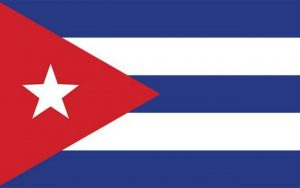
Cuba operates a one party system with the communist Party of Cuba being the sole ruling party in the State. It is fair to say that Socialism has thrived in Cuba with it’s State ran economy, free education for citizens, subsidized housing, subsidized housing, subsidized food program, and entertainment. Little wonder it is still primarily a Socialist State.
4. North Korea: North Korea is another core Socialist State. Article 1 of it’s Constitution even declares it as an independent Socialist State. Moreso, it is predominantly a one party state with the Workers Party of Korea (WPK) the sole ruling party therein controlling the government and leadership of the country.
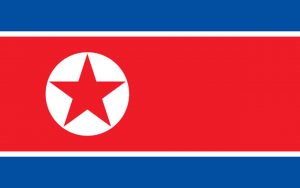
It also controls the economy of the Country as Korea’s economy is centrally planned, coordinated, and determined by the Government.
North Korea remains one of the few countries which strictly operates a Socialist market economy.
Also see: Greatest Mathematicians in History: Top 10 Best
5. Laos: The Lao People’s Democratic Republic otherwise known as LAOS, is a one Party Socialist and Communist State under the leadership of the Lao People’s Revolutionary Party (LPRP).
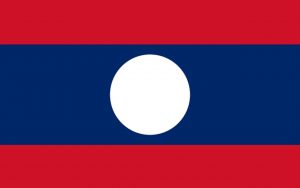
LAOS remains one of the few remaining strictly Socialist states in the world, as it still practices and espouses the Marxism-Lennism. As a matter of fact, both the practice and tenets in Laos tilts towards Socialism.
For instance, Article 13 of the Country’s Constitution provides that “All types of enterprises are equal before the law and operate according to the principle of the Market Economy and cooperating with each other to expand Production and business, while regulated by the state in the direction of Socialism.”
6. Vietnam: The Socialist Republic of Vietnam as the name implies is a Socialist Country which operates a Socialist oriented Market economy wherein the Government plays a major role in directing it’s economy, affairs, and development.

The Government in Vietnam and the ruling party, the Communist Party of Vietnam has over the years reaffirmed it’s stance on Socialism, and has resolved to still hold it’s socialist orientation and development of a Socialist economy in Vietnam. Thus, making it a core Socialist State.
Recommended: Positive and Negative Effects of Social Media on Society
7. Bangladesh: Bangladesh is a Socialist State, as Socialism is one of it’s four fundamental principles of state policy. Bangladesh is constitutionally tailored at establishing an exploitation free state.
The Preamble to it’s constitution (The Constitution of the People’s Republic of Bangladesh, Act No. Of 1972) provides as follows: Pledging that the high ideals of nationalism, socialism, democracy and secularism, which inspired our heroic people to dedicate themselves to, and our brave martyrs to sacrifice their lives in, the national liberation struggle, shall be the fundamental principles of the Constitution.
Moreso, Section 8 of it’s Constitution provides: The principles of nationalism, socialism, democracy and secularism, together with the principles derived from those as set out in this Part, shall constitute the fundamental principles of state policy. And Section 10 also provides that: . A socialist economic system shall be established with a view to ensuring the attainment of a just and egalitarian society, free from the exploitation of man by man.
Flowing from these, we can all agree that the People’s Republic of Bangladesh is a constitutionally Socialist State.
Recommended: Most technologically advanced countries in the world
8. Sri Lanka: Socialism is an ideal Economic and Political theory which is shared and adopted by the various political parties in the Democratic Socialist Republic of Sri Lanka. It is argued that Sri Lanka is a democratic Socialist State.
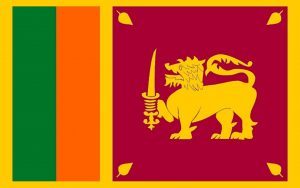
In that it is a mixture of Democracy and Socialism as both the public and private sectors contribute to the economy of Sri Lanka. As a matter of fact, the production of goods are not primarily owned by the Government. However, the Government owns and controls the Public healthcare and education system.
9. Tanzania: Tanzania, the East African Coastal Nation has been a Socialist State since attaining independence in 1961, thanks to the efforts of it’s then President Julius Nyerume in attaining a Society free from exploitation and with a sense of mutual help and solidarity.
However, these tenets of Socialism didn’t materialize in Tanzania till date. The Country now practices a mixed economy wherein a good number of it’s factors of production have been privatized while the Government still exercise some control of the economy.
Recommended: How To Balance Your Social And Academic/School Life
10. Venezuela: Venezuela’s recent socialist policies have made it an example of a socialist nation. However, Venezuela’s situation is complicated, and “socialism” has several meanings.
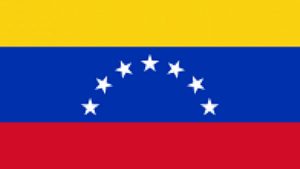
Venezuela’s “Bolivarian Revolution,” headed by late President Hugo Chávez, sought social justice via socialist ideas. Poverty, inequality, and access to healthcare, education, and housing were addressed through government social programs. Venezuela’s socialist model nationalized oil, telecoms, and mining. The government wanted to dominate these industries to redistribute income, raise state revenue, and support social services. Socialist ideology emphasize governmental control over vital industries.
To keep essentials affordable, the government imposed price limits and subsidies. Inflation and low-income consumers were targeted by these strategies. Price limits caused economic inefficiencies, essential necessities shortages, and a black market. Communes and community councils established participatory democracy under Venezuela’s socialist paradigm. These grassroots groups gave local communities a say in public affairs and decision-making.
11. Bolivia: From 2006 to 2019, Bolivia’s socialist president, Evo Morales, addressed longstanding social and economic imbalances. MAS member Morales implemented socialist programs. Bolivia’s socialist paradigm included nationalizing vital industries, especially natural resource ones. Morales wanted governmental control of oil, gas, mining, and telecommunications. These businesses were nationalized to generate state income, redistribute wealth, and promote economic sovereignty. This method ensured that Bolivia’s wealth benefitted the bulk of Bolivians rather than a few elite.
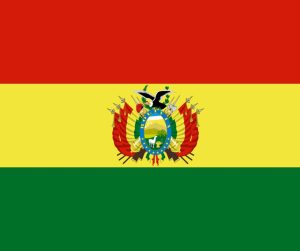
Bolivia’s socialist approach prioritized social welfare and poverty alleviation. Cash transfer, healthcare, and education programs targeted underprivileged groups under Morales. These initiatives sought to eliminate poverty, enhance access to essential services, and rectify indigenous groups’ past inequities.
Recommended: Richest Sports in the World
12. Nicaragua: The socialist Sandinista National Liberation Front (FSLN) has ruled Nicaragua for a long time. However, Nicaragua’s political and economic condition is complicated and has changed throughout time. The late 1970s Sandinista Revolution installed the FSLN and a socialist government. The government conducted agricultural reforms, nationalized enterprises, and social initiatives to reduce poverty and inequality during this time. The FSLN promoted social justice, income redistribution, and grassroots decision-making. In the 1990s, Nicaragua liberalized and became more market-oriented. Daniel Ortega’s 2007 victory restored the FSLN to power. Since then, Nicaragua has had socialist and pragmatic policies.

Nicaragua’s social policies address poverty, education, healthcare, and infrastructure under Ortega. The government’s Zero Hunger program improves food security and access to healthy meals. Conditional cash transfer programs and small-scale agriculture help have also reduced poverty.
The government also promotes community ownership and economic engagement via cooperatives and communal businesses. These programs empower rural communities and foster self-sufficiency and sustainable development.
13. Chile (during Salvador Allende’s administration): One of Chile’s most noteworthy examples of socialism happened during Allende’s 1970 presidency. Allende nationalized important sectors, redistributed wealth, and expanded social welfare. These programs were his “Chilean road to socialism.”
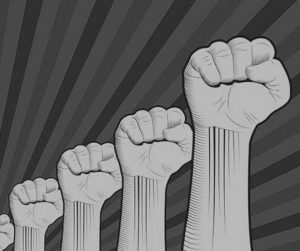
Conservative opposition, economic instability, and foreign influences plagued Allende’s tenure. General Augusto Pinochet overthrew Allende’s administration in a 1973 military coup and instituted a free-market, low-state interference economic model.
Also see: Advantages and Disadvantages of Being a Doctor
In Conclusion, Socialism is a Political and economic system of Government with a declining significance, due to the profit oriented nature of most economy and individuals. This accounts for why most countries across the globe now tilt towards the practice of Capitalism and a Market economy.
Previously, numerable countries including but not limited to: Portugal, United Kingdom, Tunisia, Algeria, Egypt, India, Germany, Angola, Mozambique, Iraq, Ghana, Libya, Poland, amongst others preferred Socialism over Capitalism and were practicing Socialism. Hence, were core socialist states, but currently only these countries so mentioned in this Article are the socialist states in the world today.

Edeh Samuel Chukwuemeka, ACMC, is a lawyer and a certified mediator/conciliator in Nigeria. He is also a developer with knowledge in various programming languages. Samuel is determined to leverage his skills in technology, SEO, and legal practice to revolutionize the legal profession worldwide by creating web and mobile applications that simplify legal research. Sam is also passionate about educating and providing valuable information to people.
I so much love this 🥰🥰